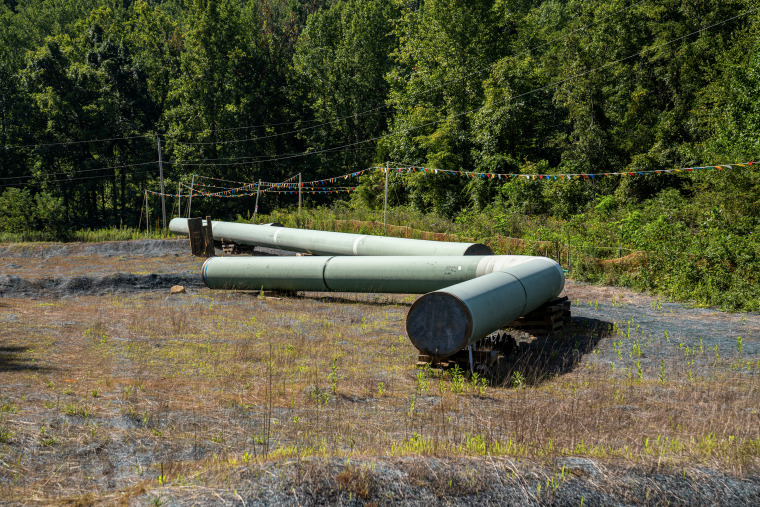WASHINGTON — The Supreme Court on Thursday allowed work on a natural gas pipeline crossing federal land in Virginia to resume over the objections of environmental groups.
The justices granted an emergency request filed by Mountain Valley Pipeline, meaning that final elements of the 303.5 mile pipeline running from the northwestern part of West Virginia to southern Virginia can be finished.
In doing so, the court blocked decisions by the 4th U.S. Circuit Court of Appeals, based in Richmond, Virginia, that prevented the project from moving forward. The appeals court intervened despite Congress including language in the recently enacted Fiscal Responsibility Act backed by Sen. Joe Manchin, D-W.Va., that stripped courts of authority to review approval of the pipeline.
Construction of the pipeline is almost finished. The dispute before the Supreme Court was over a 3.5-mile stretch in the Jefferson National Forest in Virginia as well as several stream crossings outside the forest.
Environmental groups including the Wilderness Society have sought to prevent the pipeline from being constructed, saying that there is a risk of pollution and that the project will disrupt wildlife and degrade water quality. The groups also point out that the gas itself when used will emit harmful carbon emissions that contribute to climate change.
In contesting the decisions made by various federal agencies, including the U.S. Forest Service, that allow the pipeline to cross federal land, the challengers argued that Congress' intervention was itself unconstitutional by preventing courts from reviewing the government's decisions.
"Congress enacted a statutory provision that crosses the line between legislating and judging," lawyers for the Wilderness Society wrote in court papers.
Lawyers for the pipeline, which is a joint venture involving several companies including the Equitrans Midstream Corp., said in their own court filings that the appeals court "had no authority" to block the project in light of Congress' action.
"The court of appeals’ stay orders flew in the face of this recent, on-point, and emphatic congressional command that the remaining construction of the Mountain Valley Pipeline must proceed without further delay," the lawyers added.
The Biden administration filed a brief backing the pipeline.

